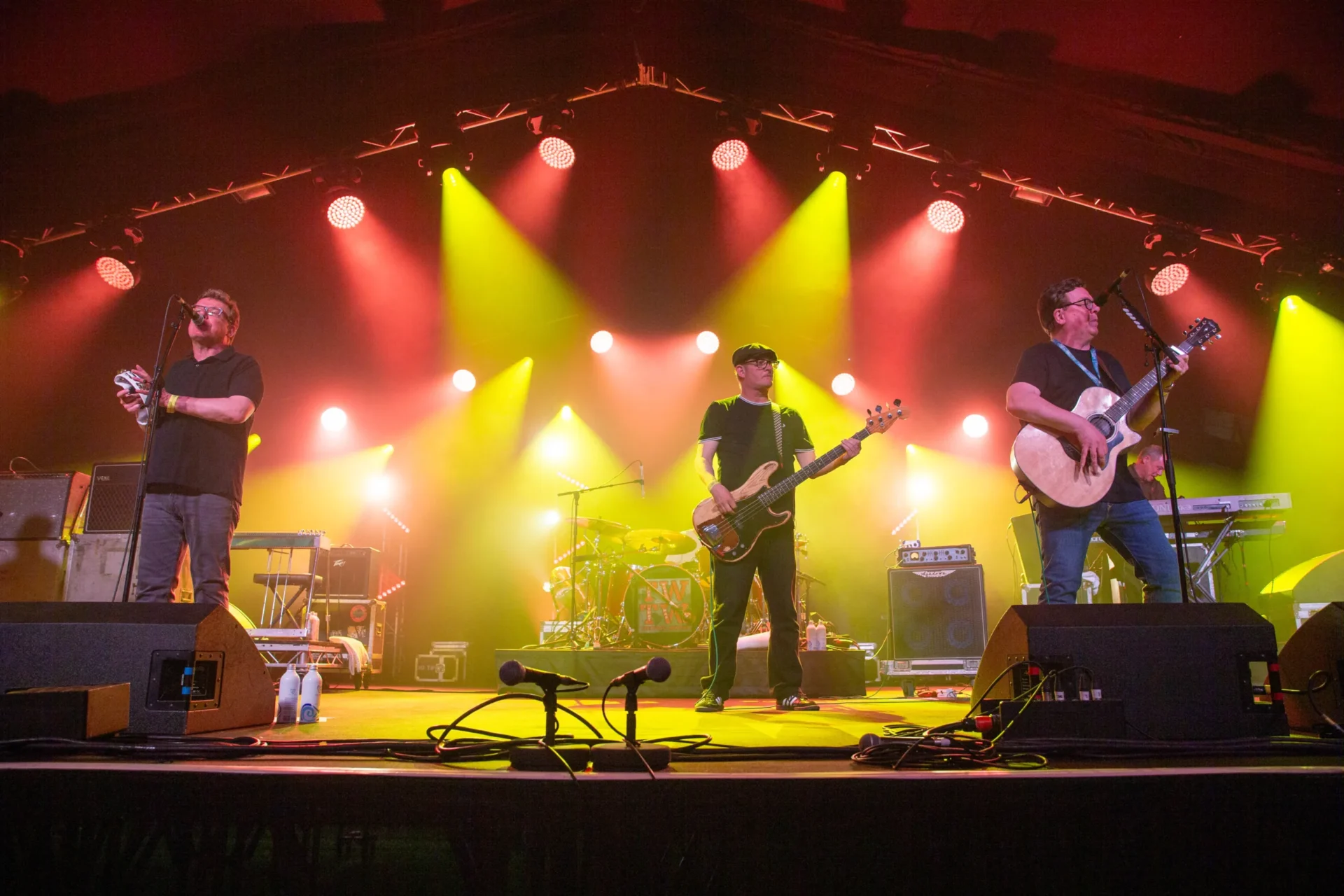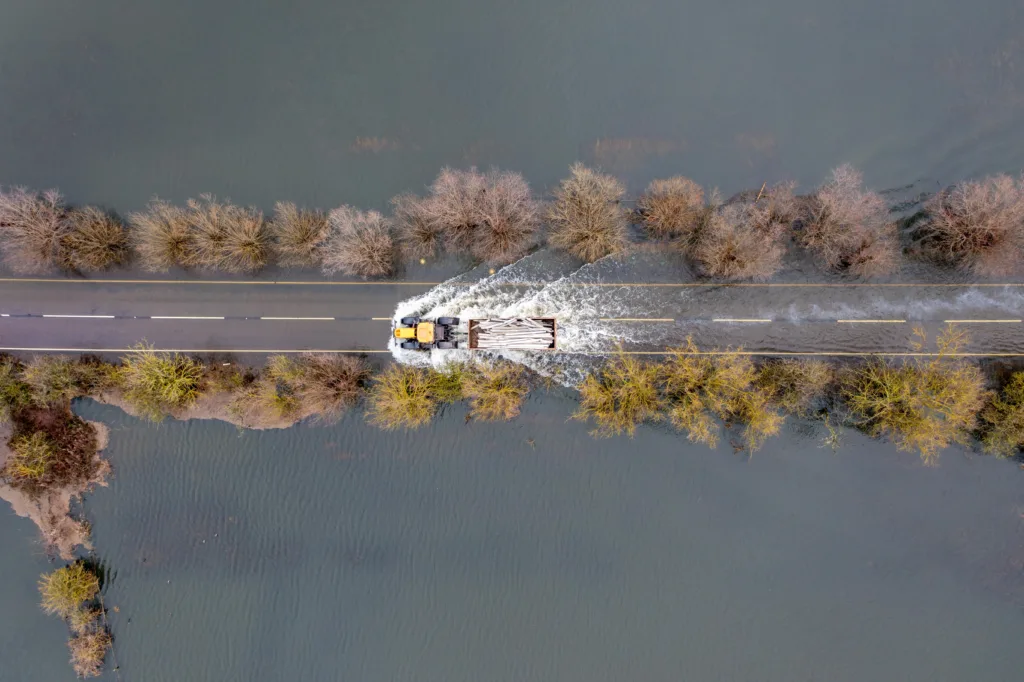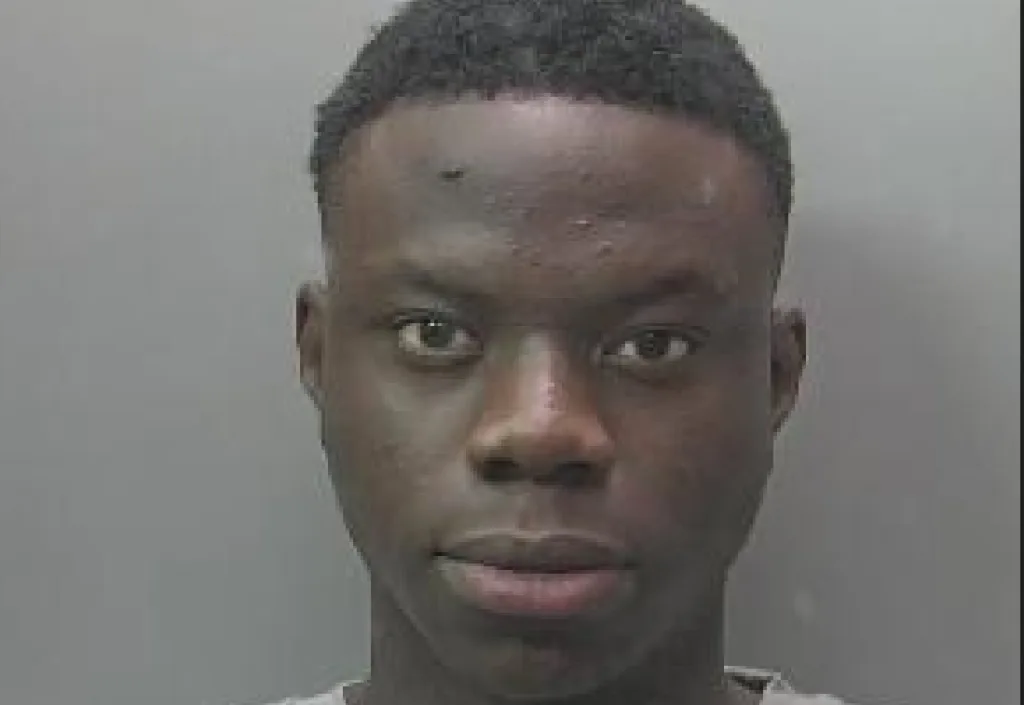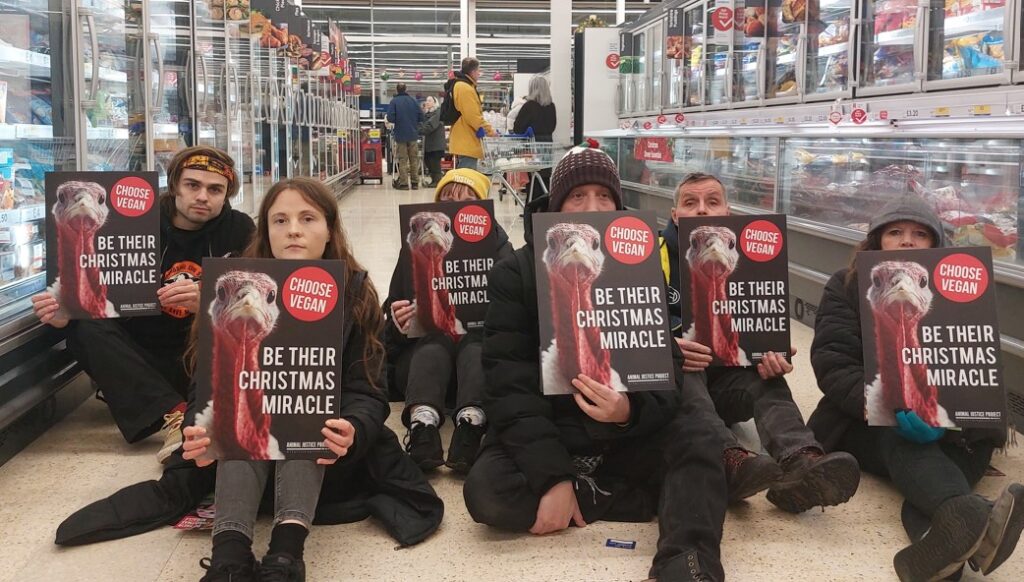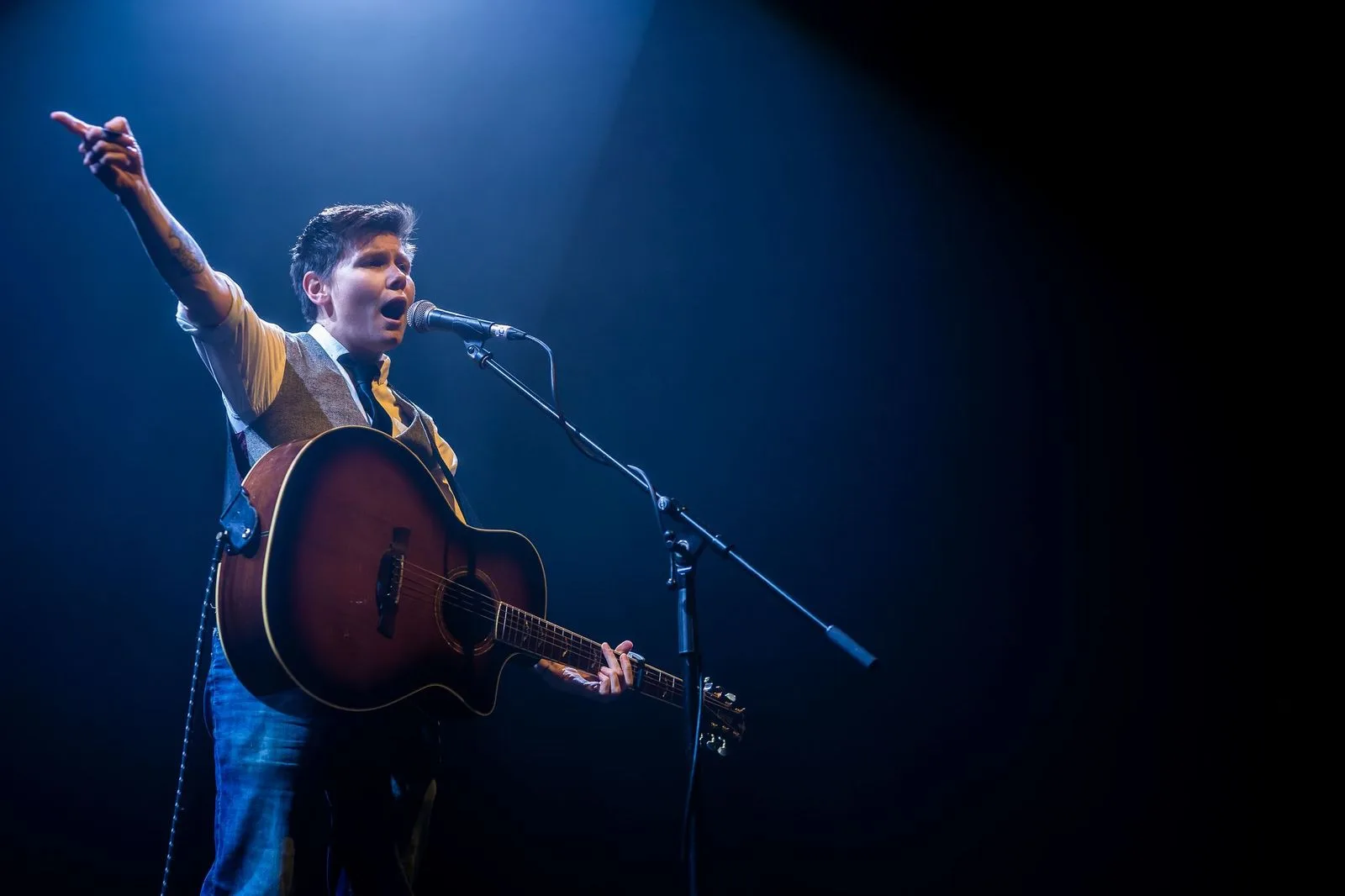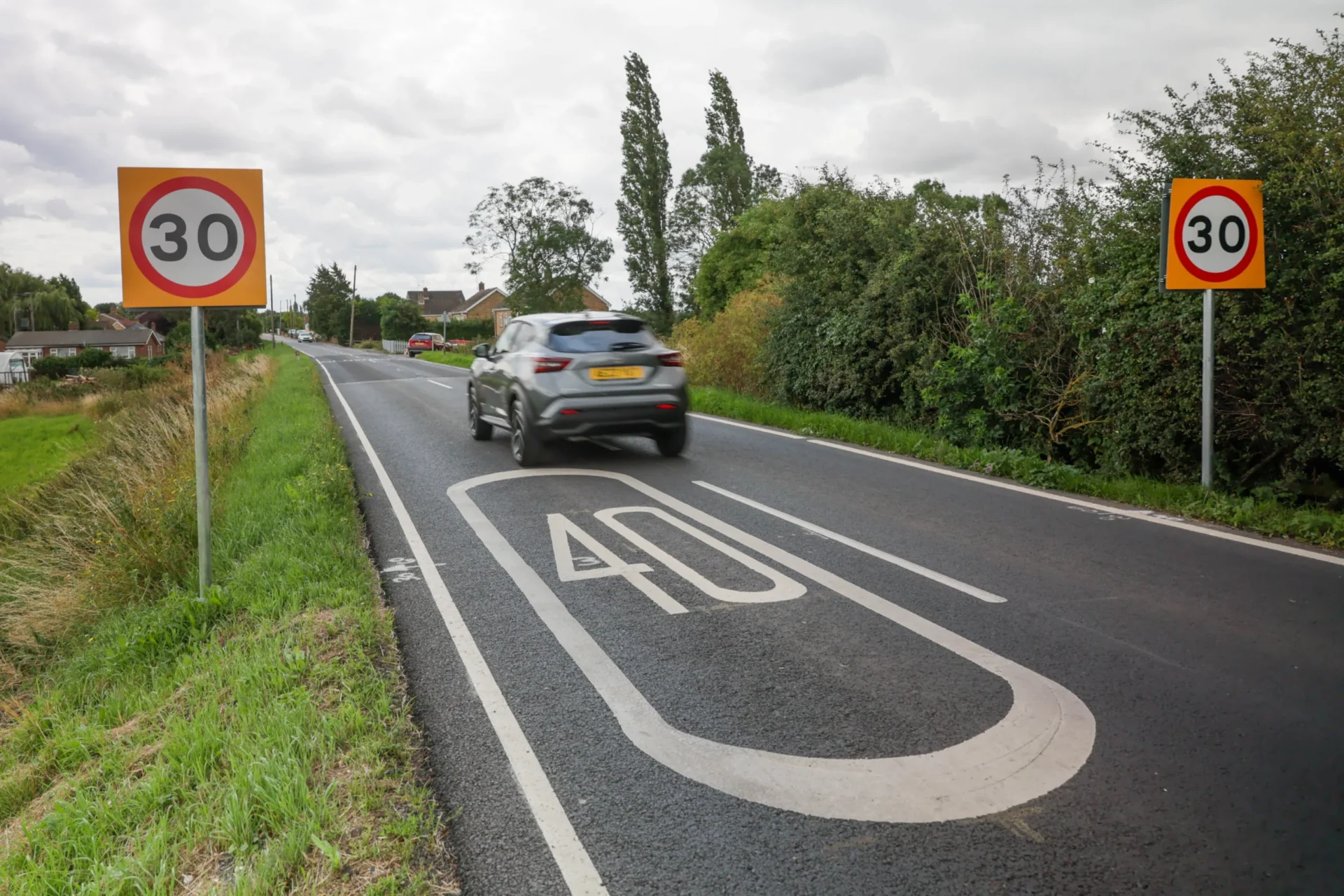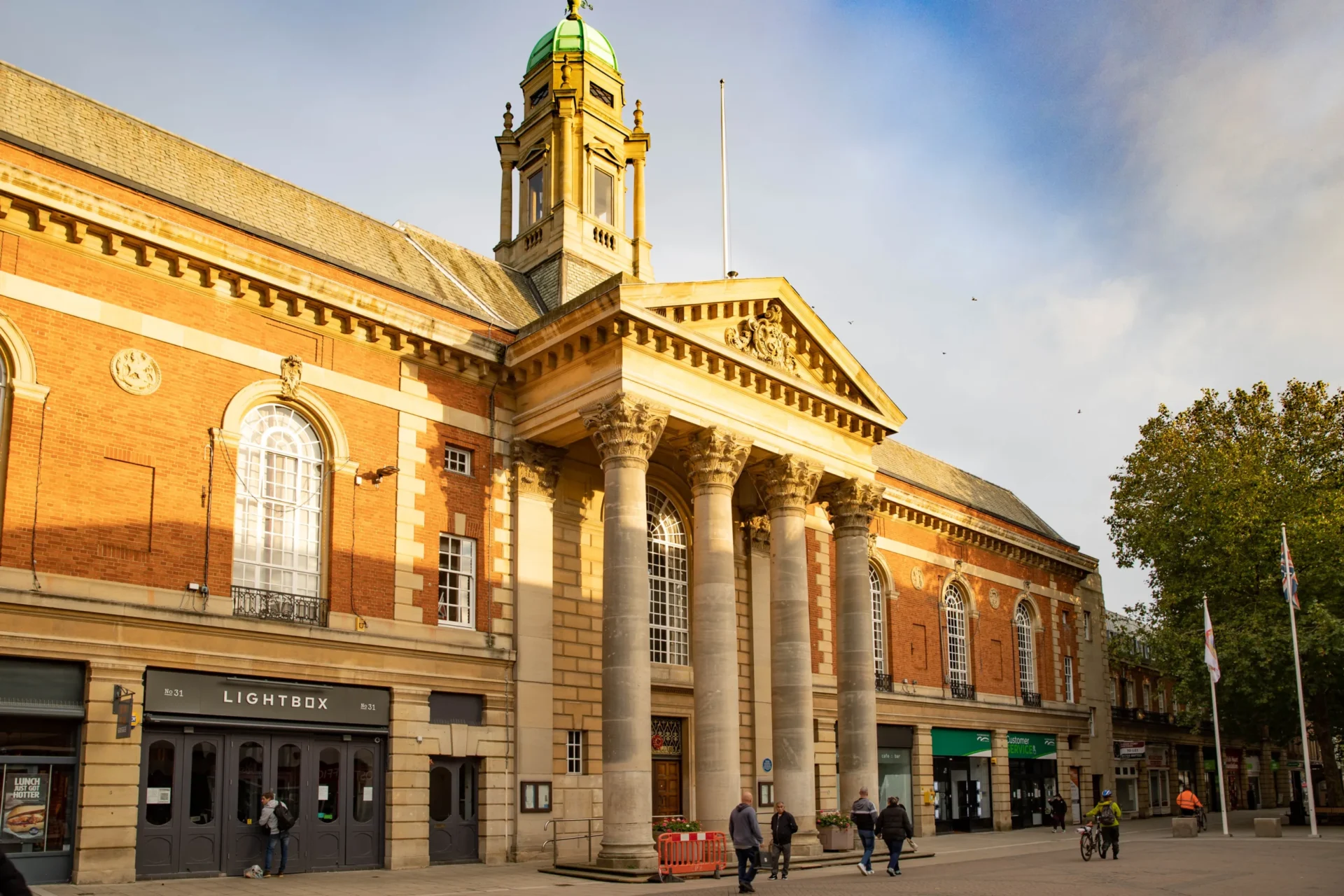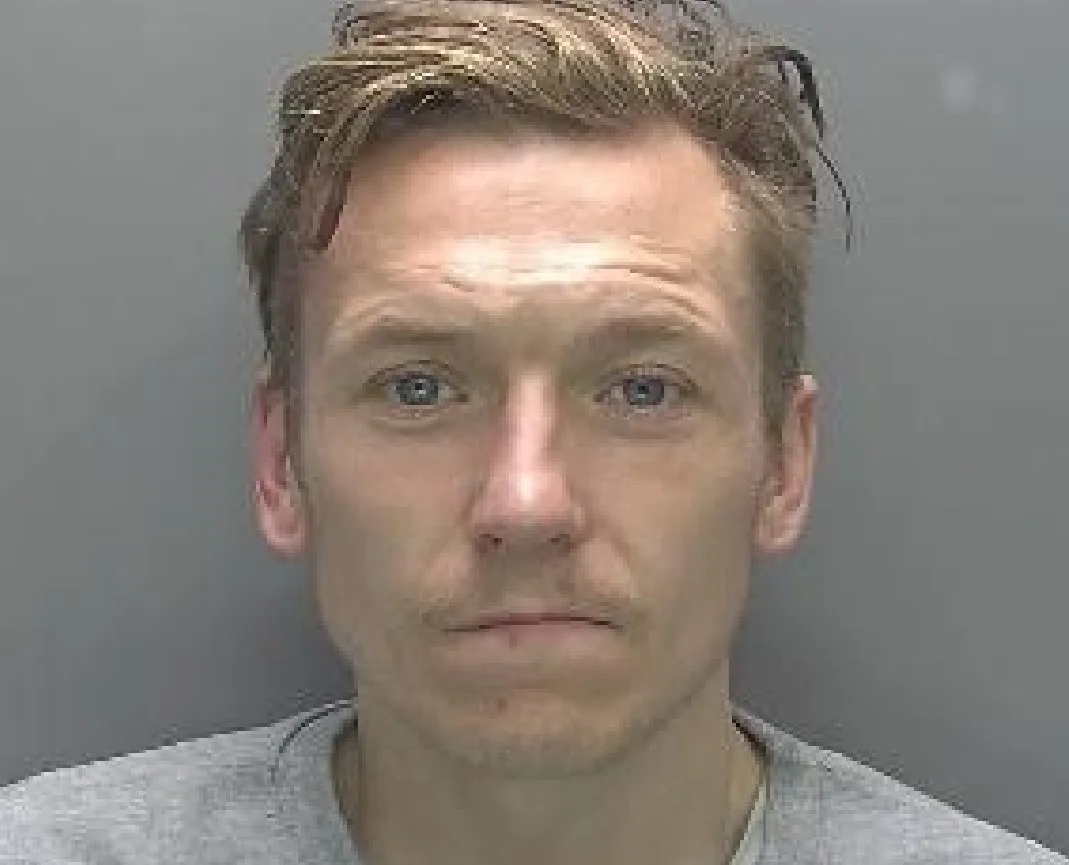Friday, the second day of this year’s Cambridge Folk Festival was excellent in parts.
The excellent parts were, of course, the musicians playing there. But – for the first time in my memory, the comfort and care – luxury feel of this intimate little festival which made it stand out was missing. And I missed it.
Whereas back in 2017, The Friday night line-up was devoted to women artists, this year the festival didn’t dare to provide separate women’s loos.
Where are we – Afghanistan?
Call me petty but in previous years I delighted in the luxury loos with steps up to them, with mirrors and pictures on the wall, which never ran out of loo roll, paper towels and soap.
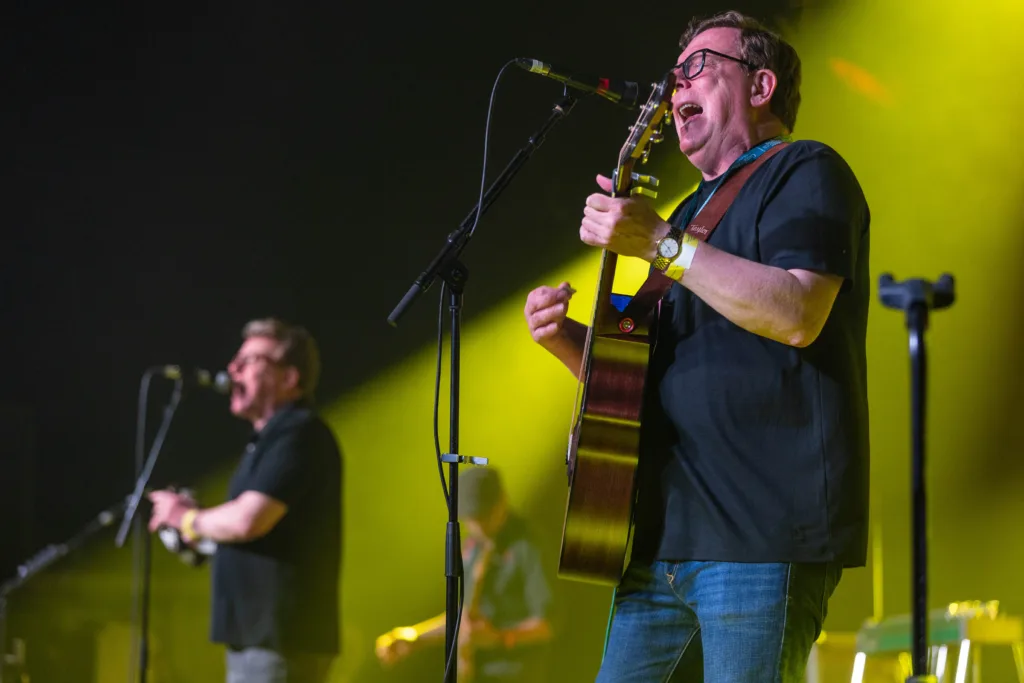
Cambridge Folk Festival, Cambridge
Friday 28 July 2023.
Picture by Terry Harris.
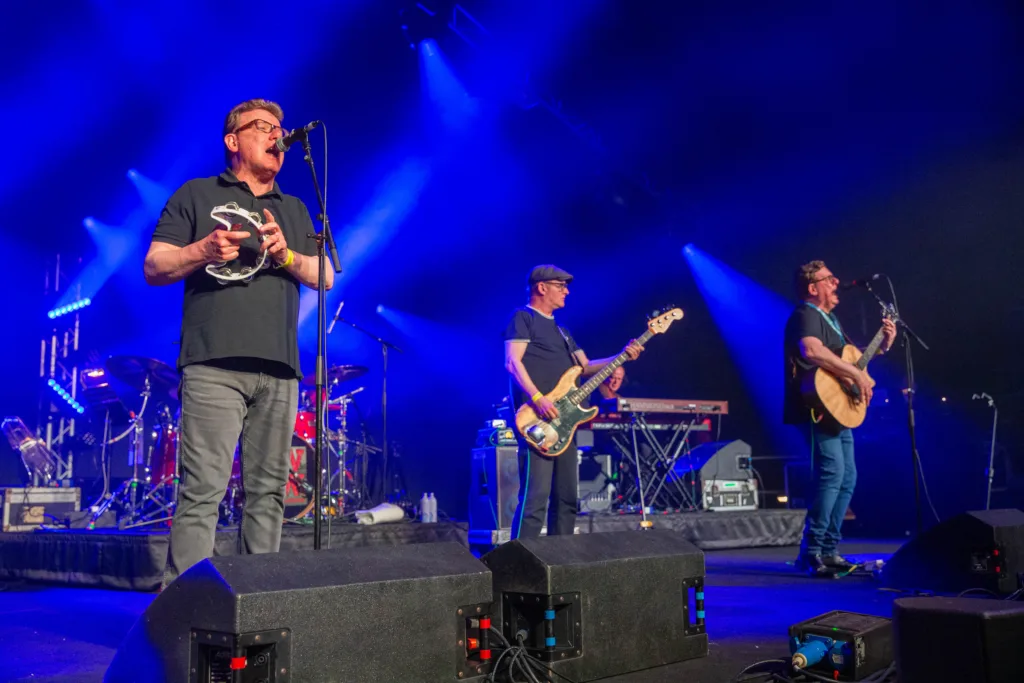
Cambridge Folk Festival, Cambridge
Friday 28 July 2023.
Picture by Terry Harris.
Now Cambridge (which was always a cut above) has joined other festivals and provides urinals or a unisex cubicle, designed clearly for men with nowhere to hang a bag, no room to take in a small child, no bin for female necessities (or nappies) and instead of a sink, a bottle of hand sanitiser which in my case had run out.
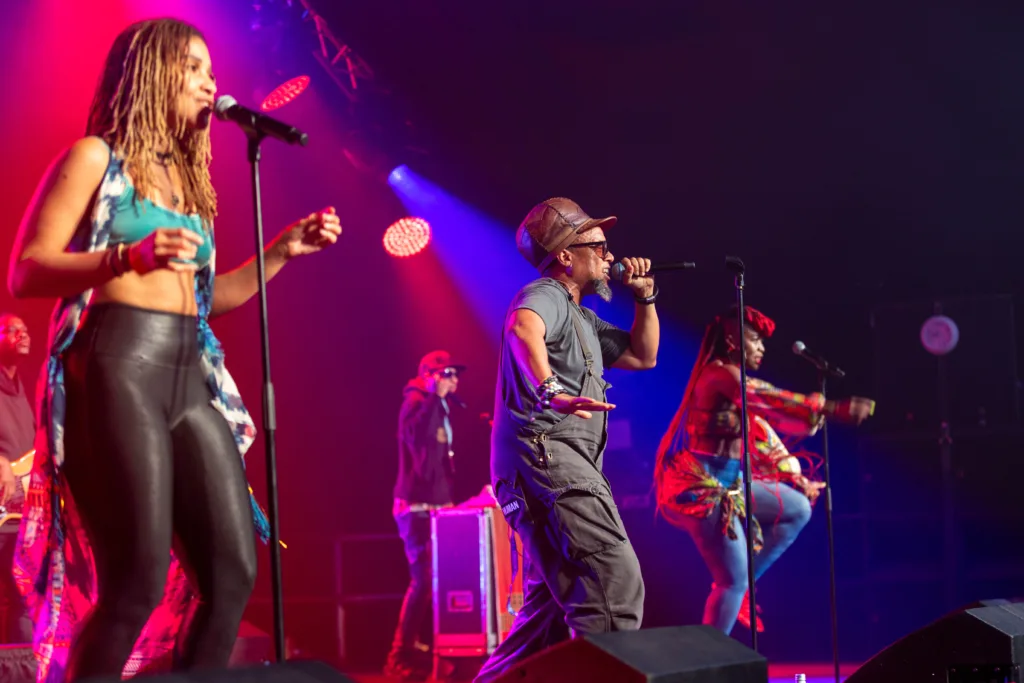
Cambridge Folk Festival, Cambridge
Friday 28 July 2023.
Picture by Terry Harris.
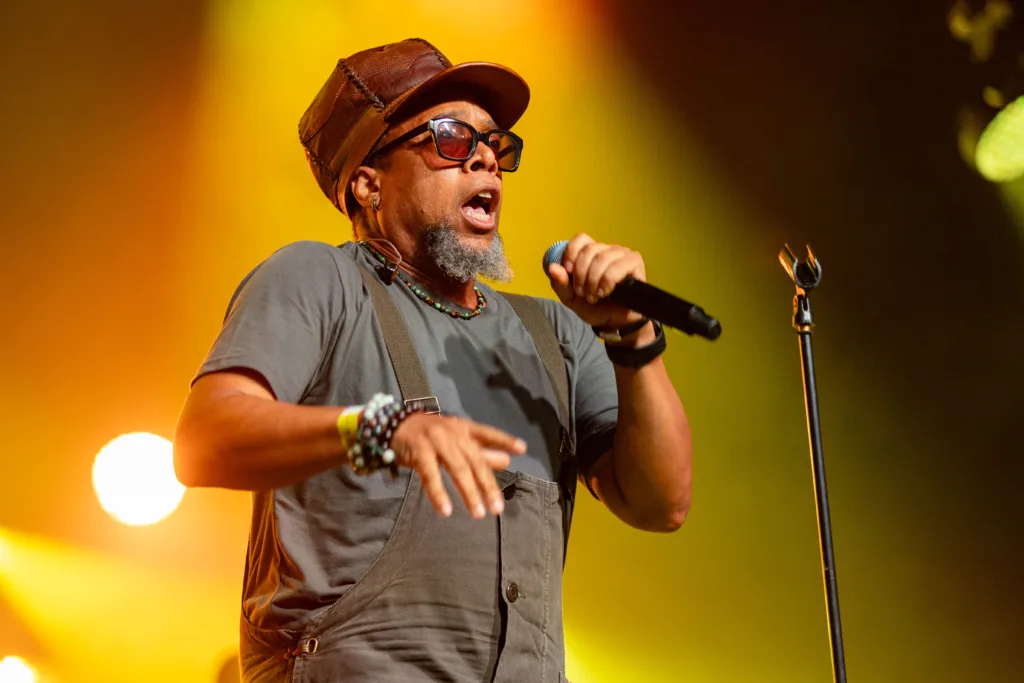
Cambridge Folk Festival, Cambridge
Friday 28 July 2023.
Picture by Terry Harris.
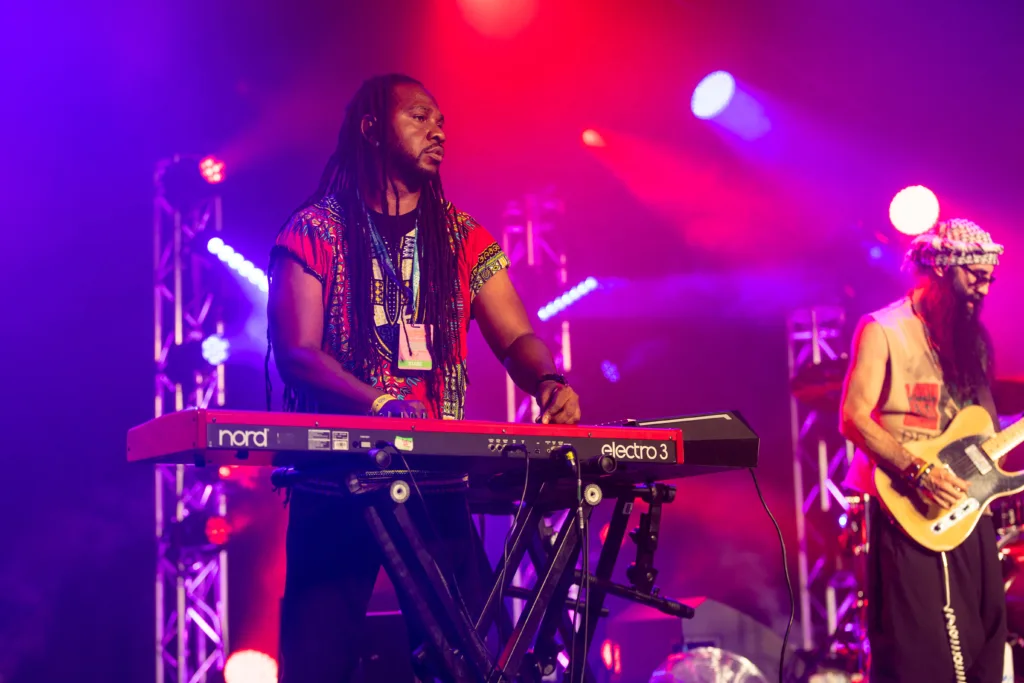
Cambridge Folk Festival, Cambridge
Friday 28 July 2023.
Picture by Terry Harris.
But let’s move on to the excellent parts. The highlight act of Friday for me was The Ayoub Sisters playing violin and cello in Stage Two. No, it’s not traditional folk – but neither is most of it these days.
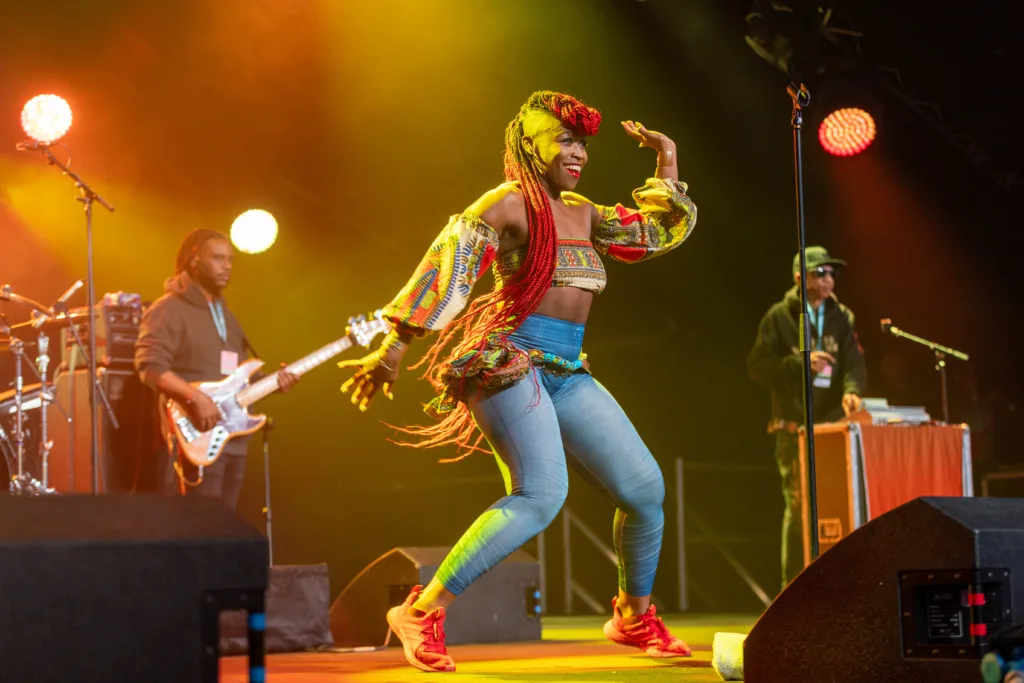
Cambridge Folk Festival, Cambridge
Friday 28 July 2023.
Picture by Terry Harris.
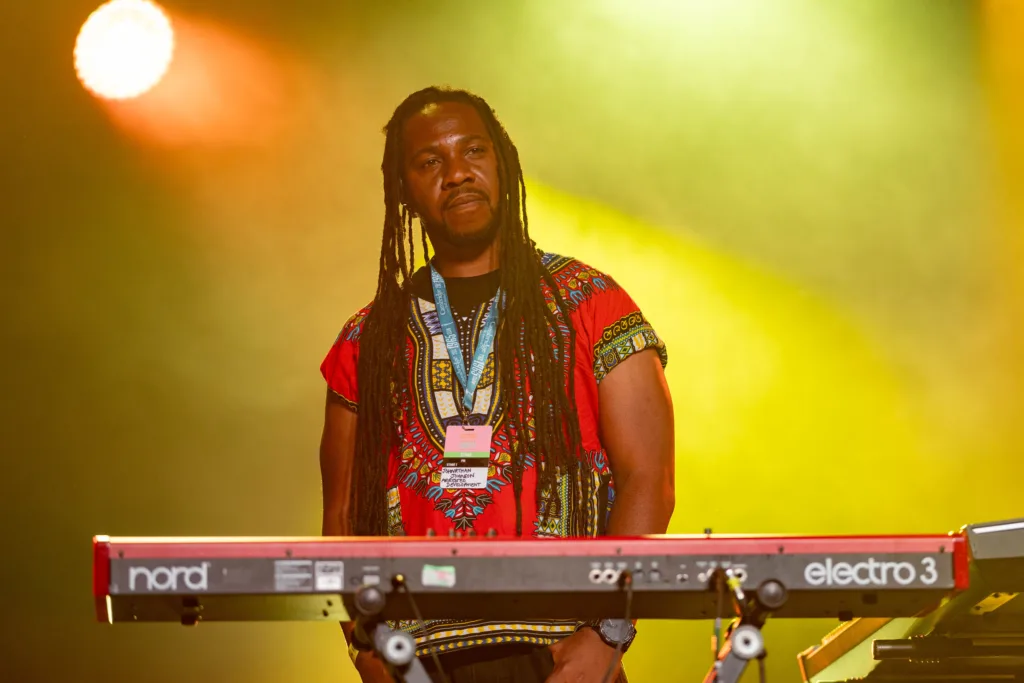
Cambridge Folk Festival, Cambridge
Friday 28 July 2023.
Picture by Terry Harris.
The festival is eclectic and it’s marvellous. Born in Glasgow to Egyptian parents, Sarah and Laura Ayoub are graduates of The Royal Conservatoire of Scotland and the Royal College of Music. They give a compelling and uplifting classical depth to everything they play, ancient and modern.
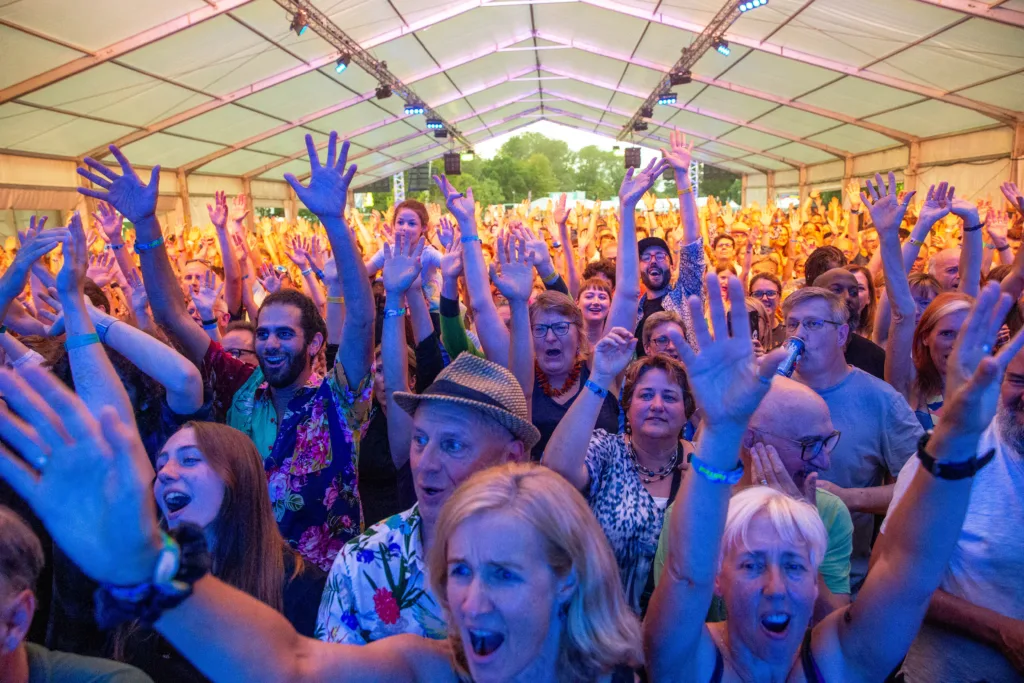
Cambridge Folk Festival, Cambridge
Friday 28 July 2023.
Picture by Terry Harris.
They played Hungarian Dances, their own version of Greensleeves and prayers from Egypt, Coptic Christian and of Islam. Absolutely rapturous musicianship. It sounds as if you are listening to a whole orchestra. Nothing is missing.
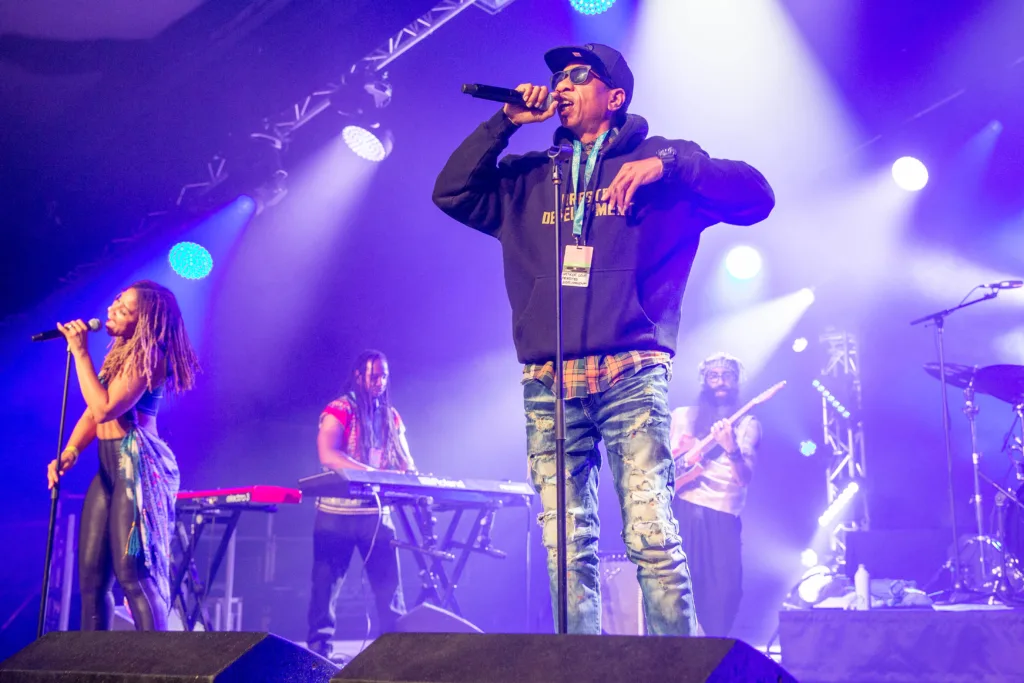
Cambridge Folk Festival, Cambridge
Friday 28 July 2023.
Picture by Terry Harris.
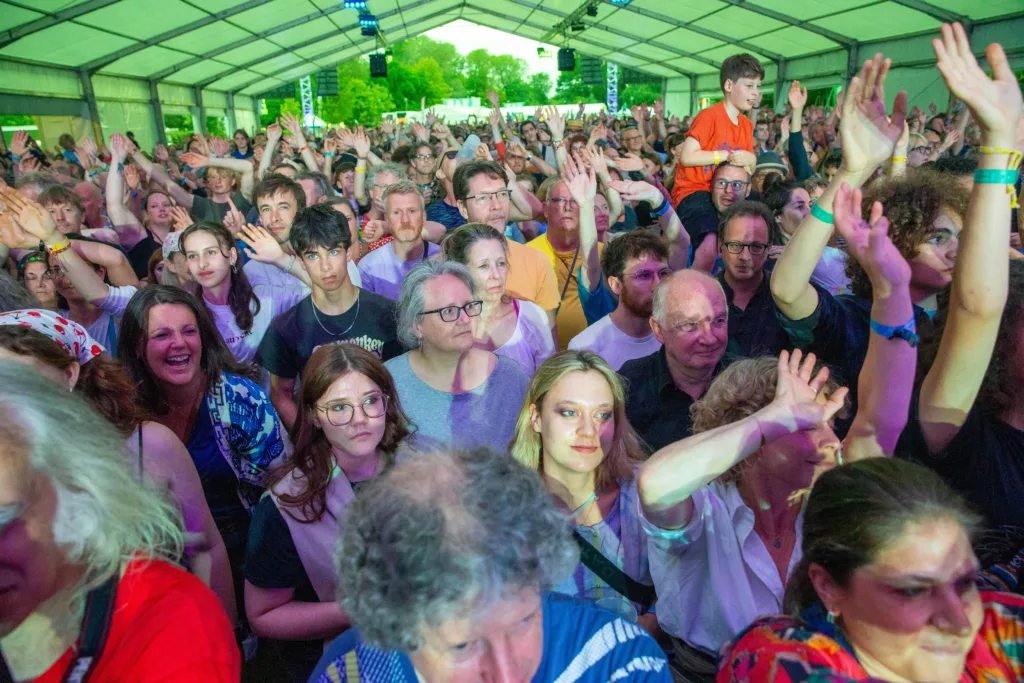
Cambridge Folk Festival, Cambridge
Friday 28 July 2023.
Picture by Terry Harris.
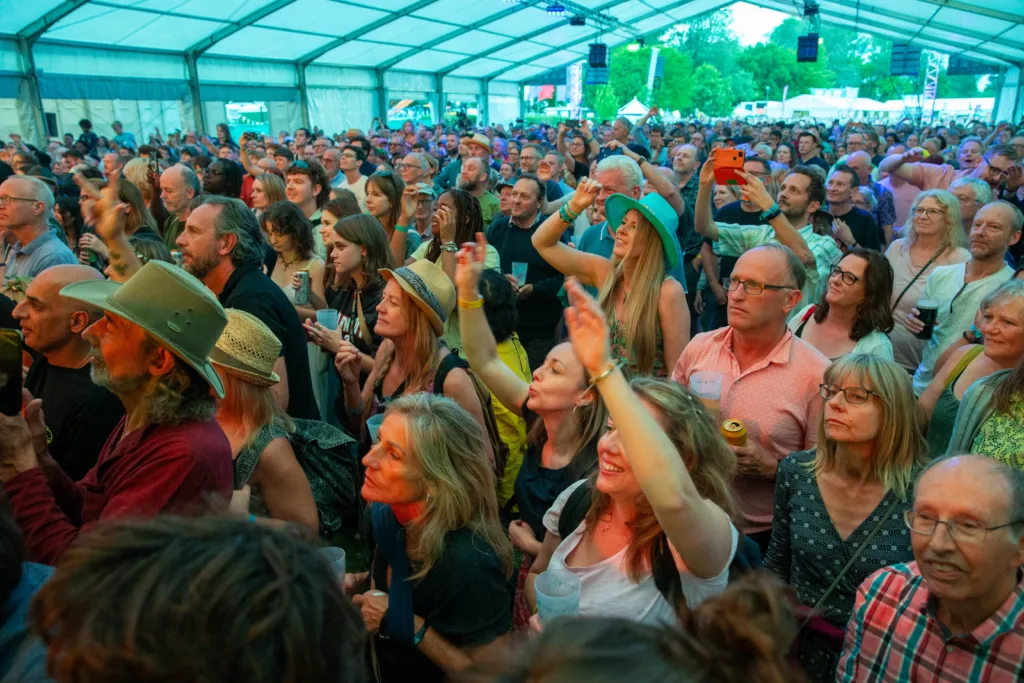
Cambridge Folk Festival, Cambridge
Friday 28 July 2023.
Picture by Terry Harris.
Earlier in the day, also on Stage Two, was Jinda Biant on guitar, a classical Indian musician from Nottingham, he grew up touring with his father playing the Indian drums, the tabla, but also listening to John Lee Hooker, Chuck Berry, Elvis Presley, and Little Richard.
His own blues compositions are an homage to the irresistible rhythms of the 1960s. Few people in the crowd could keep still. He had a lovely rapport with the audience too. When a man at the back called out something like “well done lad” in an Indian language. Everyone laughed when he said: “My dad always turns up and causes havoc.”
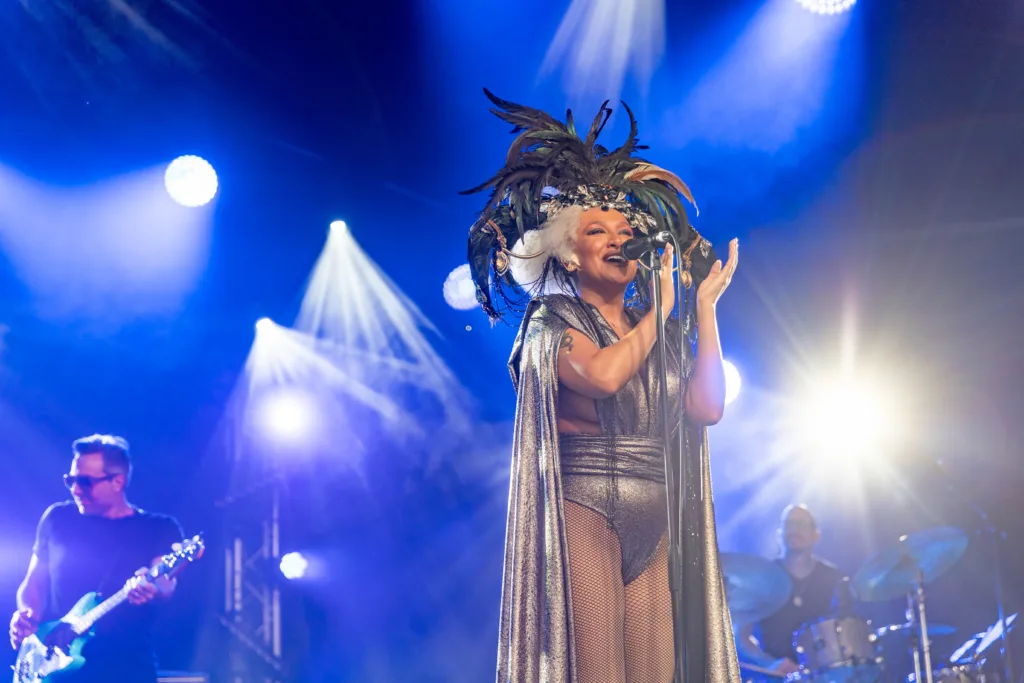
Cambridge Folk Festival, Cambridge
Friday 28 July 2023.
Picture by Terry Harris.
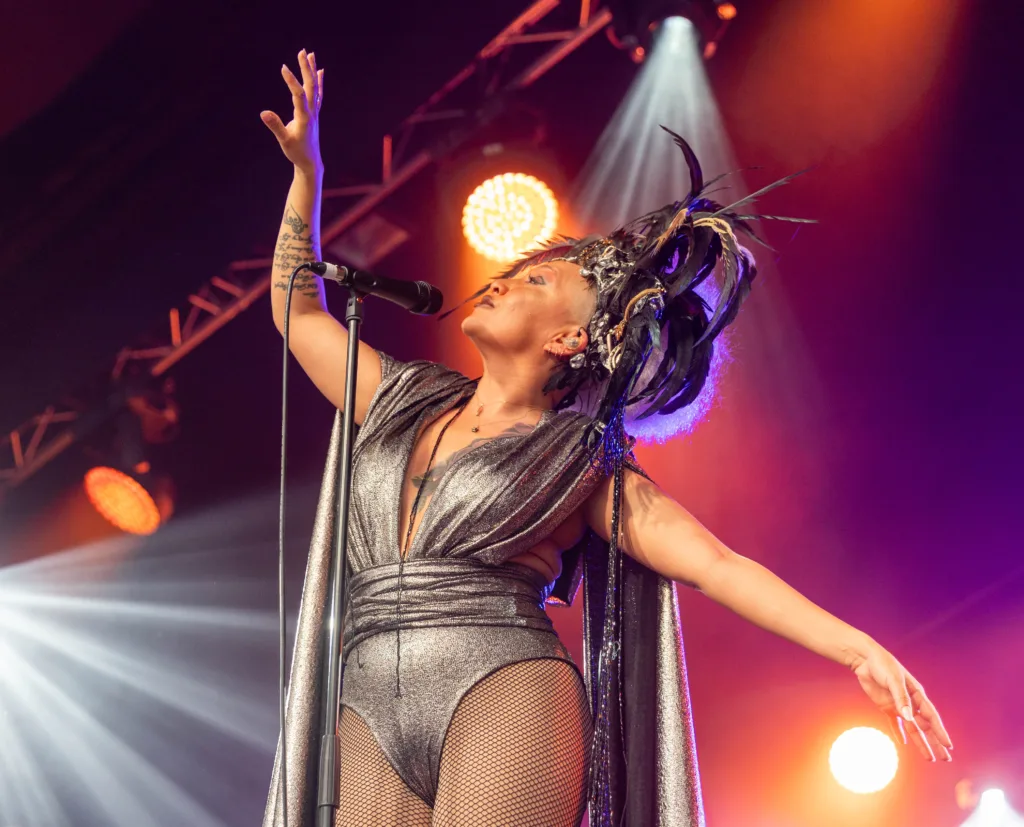
Cambridge Folk Festival, Cambridge
Friday 28 July 2023.
Picture by Terry Harris.
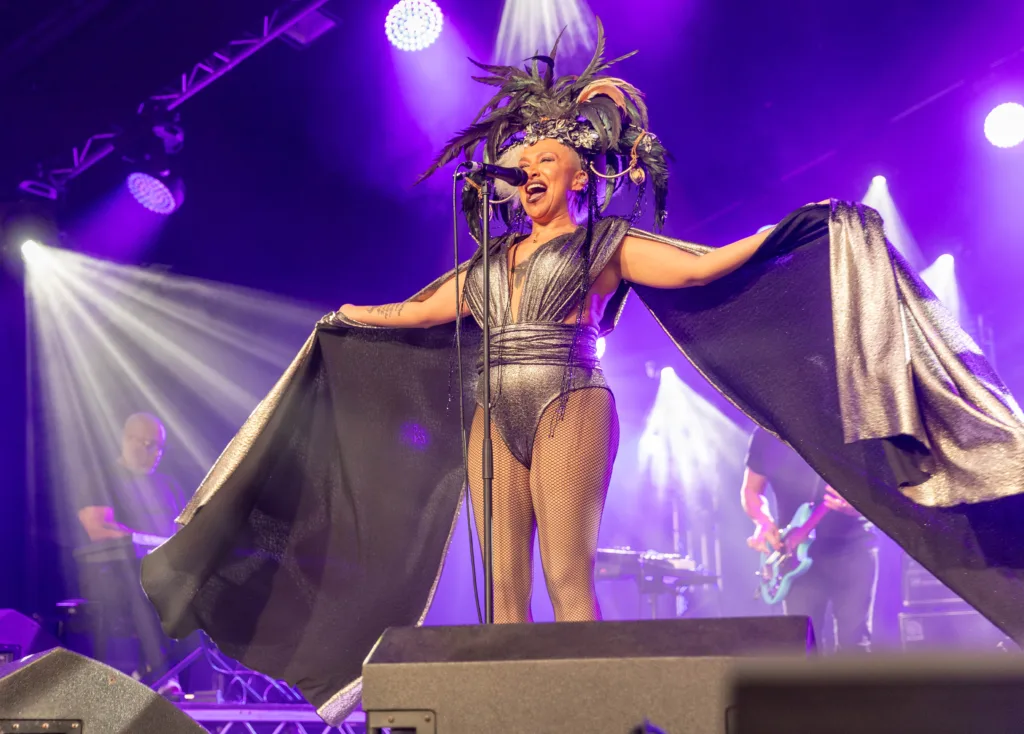
Cambridge Folk Festival, Cambridge
Friday 28 July 2023.
Picture by Terry Harris.
On Stage One, The Sharon Shannon Trio with guitarists Jim Murray and Jack Maher, played an inspired Irish reel version of Moondance by Van Morrison, several other very lively jigs and ended with an exquisite, blasting, 100 miles an hour rendition of Galway Girl which lifted the roof.
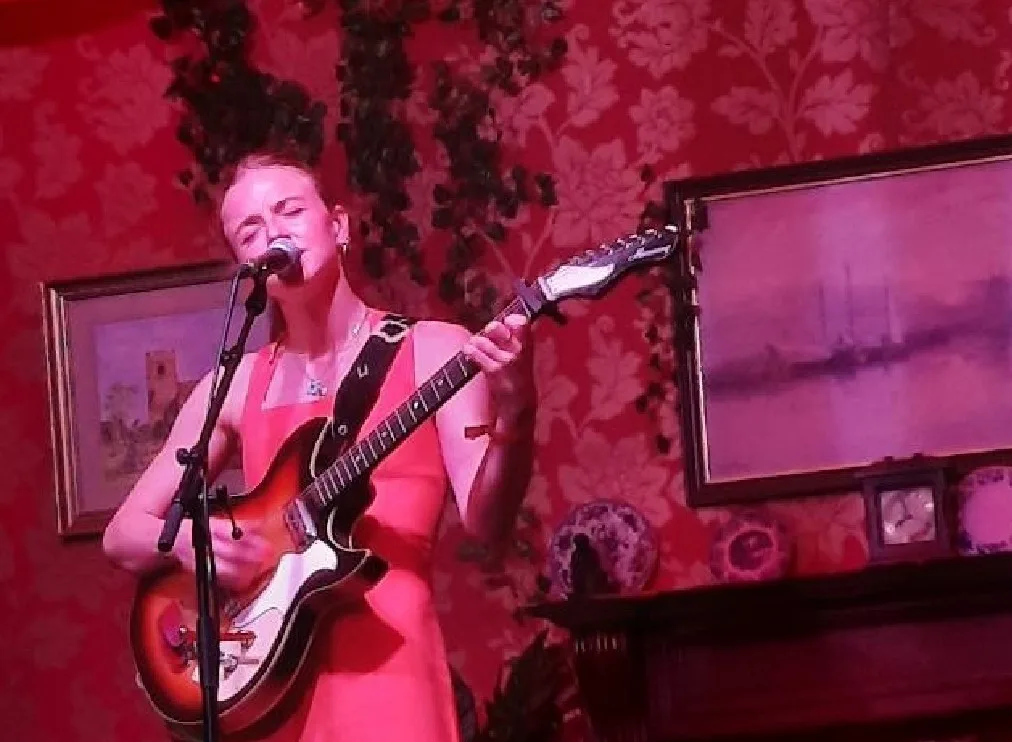
Sharon paid tribute to Irish singer Sinead O’Connor whose death was announced Wednesday. Meanwhile, in the tranquil little living room tent called The Den, young Milly Upton sang her own version of the song Sinead had made famous, Nothing Compares to You and Upton’s own composition about the stillness of floating under the sea where no one could reach you, which had the gentle rhythm of waves.
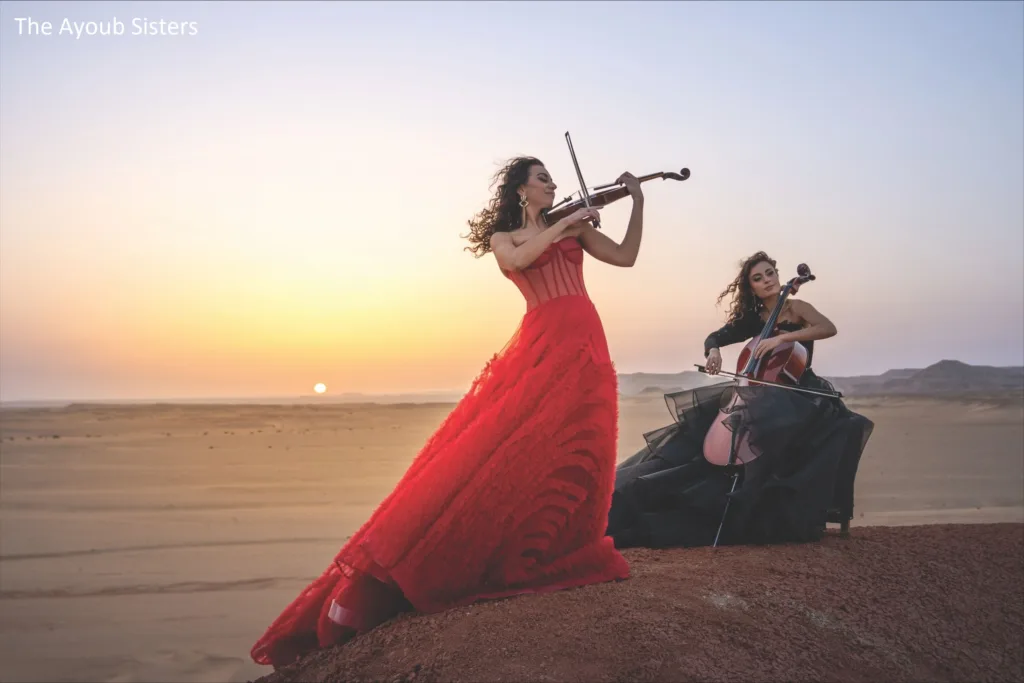
The evening on Stage One included the superb musicianship of The Daoiri Farrell Trio. Farrell is a Dublin-born traditional singer and bouzouki player known for his album True Born Irishman and his dazzling version of the song Van Diemen’s Land. Of course, the crowd went wild.
Last up were The Proclaimers, who were removed this year from the coronation playlist because of their republican views. They sang their hits, including Gonna Be (500 Miles) – which was originally on the list, Letter from America and In Recognition – a song about left-wingers forget their principles when they accept honours. “You take a gaudy prize from people you said you despise, you wear your self-respect upon your bended knee.” Cambridge loved them.
Cambridge Folk Festival continues until Sunday, July 30. Still to come: Le Vent du Nord, Oi Va Voi, Judy Collins, Fishermen’s Friends, Kiefer Sutherland, Angelique Kido, and Imelda May.


